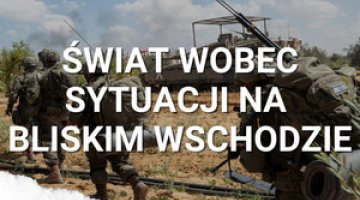The Turkish reaction to the independence referendum in Iraqi Kurdistan
An independence referendum took place in Iraqi Kurdistan (KRG) on 25 September. It met with unprecedentedly tough criticism from Turkey both in the period preceding the referendum and on the day it was held. The Turkish president, Recep Tayyip Erdoğan, Prime Minister Binali Yıldırım and the Turkish National Security Council recognised it as unacceptable and unlawful. Turkish politicians have promised to take any political, economic and, as a last resort, military measures to counteract its consequences, including border closure, withholding flights, the imposition of economic sanctions (including blocking oil transit from the KRG via Turkey) and the threat to use force in the case of danger posed to the Turkmen community in Kurdistan. Close co-operation with Baghdad and Teheran has also been announced to isolate the KRG. In parallel to this, military exercises are taking place on the border with Iraq. Actions coordinated with Iraqi forces are expected to be added to the exercises.
Regardless of the harsh rhetoric, the border between Turkey and the KRG is still open.
Commentary
- The Kurdistan Regional Government (KRG) is formally a federal subject of Iraq. However, in practice it enjoys extensive authonomy that has been built on since the 1990s and in part backed up by its own armed forces. The recent referendum is a step towards confirming and strengthening the sovereignty of the KRG and also a response to the unfavourable trends in the region (the increasing dominance of Shias in Iraq who are dependent on Iran). At the same time, it has met with harsh criticism from Baghdad, Teheran and Ankara and a lack of acceptance worldwide, with the exception of Israel. As expected, the vast majority (91.8%) of the voters backed the independence of Kurdistan (only and exclusively Iraqi Kurdistan within the borders currently controlled by Kurdish forces), which – as assumed by the government in Irbil – should lead to independence being announced within a year or so at the most. One inevitable consequence of the process will be increasing tension in Iraq, including the high risk of Kurdish-Iraqi conflicts in which the neighbouring countries will inescapably be engaged.
- While the Republic of Turkey has brutally combated any centrifugal Kurdish movements in its territory since its establishment and has been at war with Kurdistan Workers’ Party (PKK) and its extensions operating in Turkey and Syria over the past few years, it has developed ideal relations with the KRG over the past decade. Ankara has become a real political protector of Iraqi Kurdistan and a strategic economic partner and military ally. In turn, the KRG has become Turkey’s most important partner in the region, serving, for example, as a counterbalance to the PKK (there is fierce rivalry between the PKK and the KRG’s governing party, the Kurdistan Democratic Party, KDP), a barrier to Iran’s influence in the region and an instrument of pressure on Iraq. The KRG is also an important economic partner – the estimated value of Turkish exports to the KRG in 2016 reached US$5.4 billion, while the value of exports to Iraq as a whole was US$7.6 billion. Iraqi Kurdistan is also potentially a major source for diversifying oil and gas supplies. It was only the Kurdish independence referendum that posed a serious challenge to this co-operation.
- The referendum in the KRG is a source of frustration for Ankara and poses a number of serious challenges to Turkey. Above all, it significantly increases the risk of a new conflict on the Turkish border that will affect the only area where the positive effects of Turkish engagement are visible. Meanwhile, the war in Syria has shown that Turkey’s capabilities of successfully playing on military conflicts are very limited (especially in confrontation with Iran); hence the criticism of Irbil and the desire to calm down Teheran and Baghdad. Another reason for the harsh reaction is the desire to discipline the Iraqi Kurds whose real independence has come as an unpleasant surprise to Turkey. It seems that the deciding motive behind the harsh stance on the referendum was the desire to meet the nationalist-inclined public opinion in Turkey halfway; this reacts nervously to any Kurdish ambitions and are overly sensitive to the situation of the Turkmen minority in Iraq.
- Ankara’s harsh stance on the KRG is and will likely remain merely a political manifestation. If its threats were fulfilled, this would mean losing the past decade’s achievements and the only relatively trusted partner in the region. In practice, this would also be a contradiction of its existing policy towards the Kurdish issue, Iraq and Syria, if not the withdrawal from an active Middle Eastern policy entirely (a very unlikely scenario). At the same time, the harsh rhetoric is a constant element in Turkish policy towards the Middle East, where numerous previous threats, for example, of Turkish military interventions in Syria or Iraq, have not been put into practice.
- Ankara is likely to continue its harsh rhetoric towards the KRG and to take measures to discipline Irbil. These steps are unlikely to cause genuinely weaken the KRG or harm Turkish business active there. Publicity will probably be given to the measures regularly taken by Turkish forces against PKK forces based in KRG territory. However, in fact, these measures would support the government in Irbil. It is an open question as to how Turkey will respond to a possible breakout of an armed conflict in which the KRG will become engaged in any way – cautious support to the Kurds would be the most likely scenario in this case.
Krzysztof Strachota, additional research by Mateusz Chudziak





